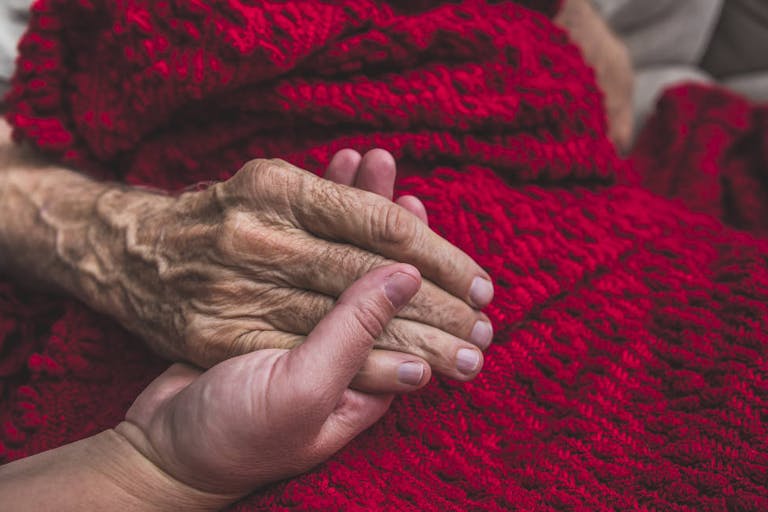
Research shows Catholic support for IVF declines once Church teaching is understood
Angeline Tan
·
CBS promotes assisted suicide of woman with ALS who didn’t want to live in a wheelchair
A New Jersey woman who chose to undergo assisted suicide due to Amyotrophic Lateral Sclerosis (ALS) had her decision promoted in a pro-death puff piece for CBS News.
Beginning with a scene of loved ones in 83-year-old Barbara Goodfriend’s house, the article noted that her home was “full of life” despite the imminent death about to happen. “It’s been a week of family, friends. We’ve done a lot of crying, all of us, but we’ve laughed. We’ve enjoyed being together,” Goodfriend said.
After being diagnosed with ALS, Goodfriend chose to undergo assisted suicide when a doctor said she wouldn’t survive through the fall. The reason why, though, was not because Goodfriend was afraid to die. Instead, her reasoning seemed to be avoiding life, albeit life with a disability.
“What am I going to give this up for? To be in a wheelchair? To have a feeding tube? I wish I had more time to live, but I don’t want more time as a patient,” Goodfriend said, calling assisted suicide a “privilege.”
READ: Clinic founded by assisted suicide practitioner blocks her from killing a patient
“I hope that something will get done, something will be accomplished,” she said, “so that others can have the privilege that I’m having.”
Article continues below
Dear Reader,
In 2026, Live Action is heading straight where the battle is fiercest: college campuses.
We have a bold initiative to establish 100 Live Action campus chapters within the next year, and your partnership will make it a success!
Your support today will help train and equip young leaders, bring Live Action’s educational content into academic environments, host on-campus events and debates, and empower students to challenge the pro-abortion status quo with truth and compassion.
Invest in pro-life grassroots outreach and cultural formation with your DOUBLED year-end gift!
That mindset is deeply damaging, and one that many disability groups, like the United Spinal Association, fight against.
Jose Hernandez, the NYC Advocacy Coordinator for the United Spinal Association and president of its New York chapter, is paralyzed. He pointed out that legalizing assisted suicide threatens the lives of people with disabilities like him. “Our home care is under attack constantly,” he said. “If it becomes legal in New York, are you going to continue to cut vital services making the way for people with disabilities to become terminal?”
Goodfriend, however, shrugged that idea off. “If it’s not a good idea for you, don’t consider it, but there has to be a way for those who want it,” she said, and then further reiterated that it was disability she seemed to want to avoid. “I’m not afraid of dying… I was afraid of living.” She ended her life in November.
Though assisted suicide advocates routinely claim the deadly practice needs to be legalized so people can avoid a prolonged, painful death, Goodfriend’s reasoning is much more common.
People overwhelmingly cite a “loss of autonomy” as their reason for wanting to die, in numerous reports, as well as not wanting to be a burden on their loved ones. It seems, then, that assisted suicide thrives on the inherent ableism and fear of disability that continues to linger throughout our society — encouraging death whenever disability is suspected, both in the womb and at the end of life.
Live Action News is pro-life news and commentary from a pro-life perspective.
Contact editor@liveaction.org for questions, corrections, or if you are seeking permission to reprint any Live Action News content.
Guest Articles: To submit a guest article to Live Action News, email editor@liveaction.org with an attached Word document of 800-1000 words. Please also attach any photos relevant to your submission if applicable. If your submission is accepted for publication, you will be notified within three weeks. Guest articles are not compensated (see our Open License Agreement). Thank you for your interest in Live Action News!

Angeline Tan
·
Analysis
Cassy Cooke
·
Analysis
Cassy Cooke
·
Analysis
Cassy Cooke
·
Analysis
Cassy Cooke
·
Analysis
Nancy Flanders
·
International
Cassy Cooke
·
Analysis
Cassy Cooke
·
Analysis
Cassy Cooke
·
Analysis
Cassy Cooke
·
Analysis
Cassy Cooke
·